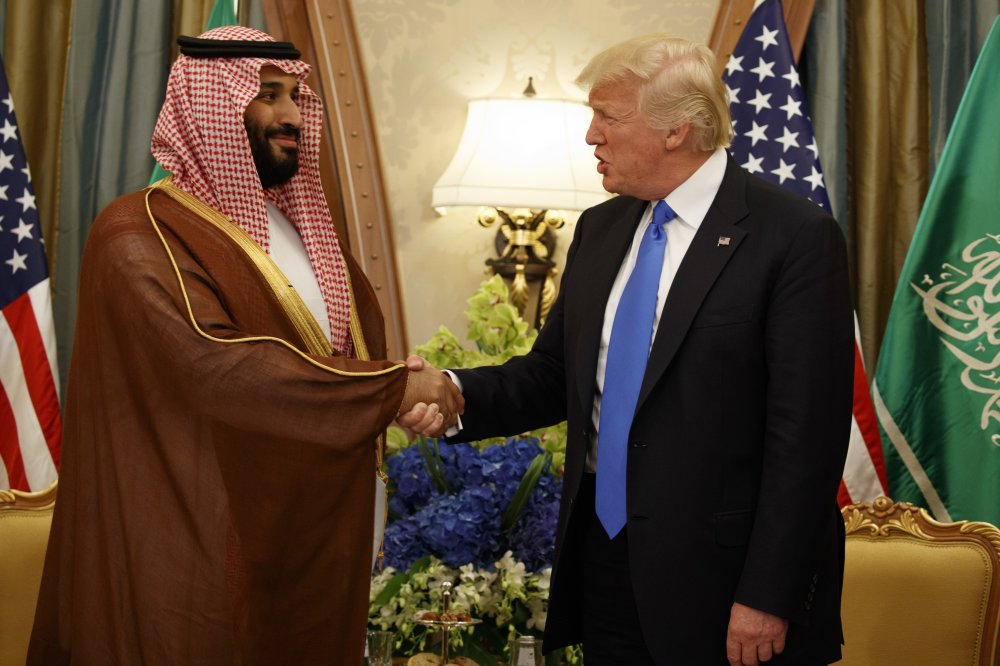Donald Trump took a few minutes on Monday to discuss his perspective on Saudi Arabia and why he’s prepared to defend the Middle Eastern country in the wake of the attack on its oil-production facilities over the weekend. ABC News’ Jonathan Karl, pointing to a tweet Trump published before his election, asked the president whether he still believes it’s the responsibility of the Saudis to defend themselves.
This was Trump’s answer in its entirety:
“I think it’s certainly the responsibility of them to do a big — a big deal of their defense, certainly. I also think it’s the responsibility of the Saudis to, if somebody like us — which are the ones — are going to help them, they, I know, that monetarily will be very much involved in paying for that.
“This is something that’s much different than other presidents would mention, Jon. But the fact is that the Saudis are going to have a lot of involvement in this if we decide to do something. They’ll be very much involved, and that includes payment. And they understand that fully.”
The Republican doesn’t have a foreign policy, per se. He has transactions. In this case, Trump made it sound as if there’s a price tag on the use of American military power, and he’s comfortable with the fact that the Saudis pay cash.
In fact, the president was quite literal on this point. Asked at the same Oval Office meeting whether he’s promised Riyadh that the United States will protect Saudi Arabia following the weekend’s attack, Trump said he’d made no such promise, but he’s “certainly” prepared to assist.
He added, “They’ve been a great ally. They spend $400 billion in our country over the last number of years. Four hundred billion dollars. That’s a million and a half jobs. And they’re not ones that, unlike some countries, where they want terms; they want terms and conditions. They want to say, ‘Can we borrow the money at zero percent for the next 400 years?’ No. No. Saudi Arabia pays cash.”
Again, the implication here is that Trump sees a direct connection between the United States’ willingness to use military force in the Middle East and the money foreign countries are willing to give us. From the American president’s perspective, our military isn’t for sale, but it may be for rent.
Compounding the problem, Trump is badly confused about the relevant details. Last fall, trying to defend his indifference to Jamal Khashoggi’s assassination, the president said U.S. arms deals with Saudi Arabia would be worth “over 40,000” jobs. Then it was 450,000 jobs, which soon after became 500,000 jobs. Then it was 600,000 jobs, which became “over a million jobs.”












